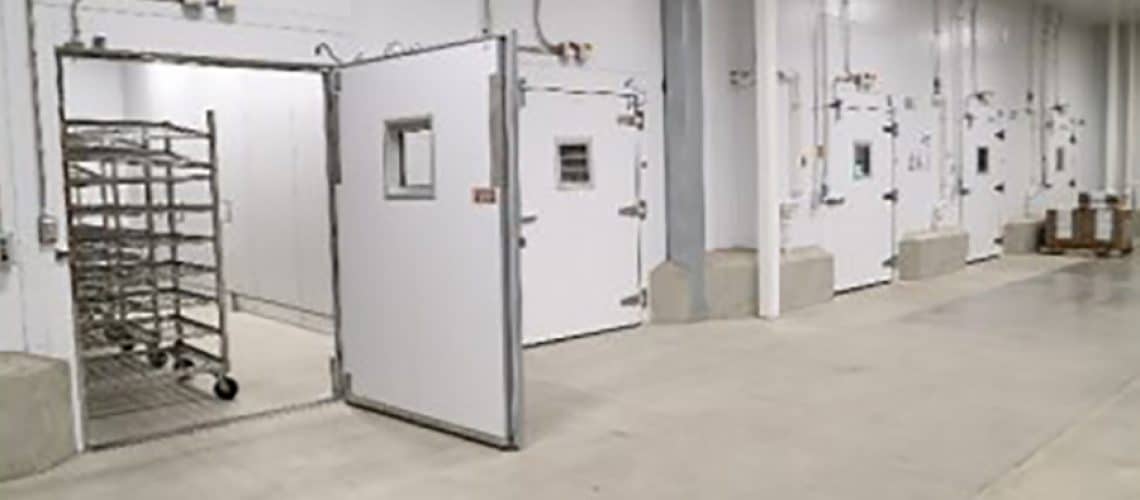Three Food Processing Industry Challenges and How to Solve Them

As the global population increases annually, the demand for food products continues to rise, putting more pressure on food production facilities worldwide. From the bread we eat for breakfast to the baked chicken we serve on our dinner table, all the food we consume comes from food processing facilities in and outside the country in one way or another. Needless to say, food processing and production companies have become vital components of our survival.
The food processing industry today is under constant pressure from a variety of different directions. It continues to have to deal with operational issues involving food quality while attempting to meet increased demand limited by a supply chain that is rife with disruptions and bottlenecks. Here are three common food processing industry challenges confronting business owners today and how they might solve them:
Food Safety
Perhaps the most vital challenge in any food processing operation is maintaining food safety standards. This challenge has remained a critical point for food processors worldwide for obvious reasons. Upholding food safety in the food processing industry can be addressed by focusing on safety plans that are product- and process-specific. Processors need a comprehensive safety program that focuses on dealing with cleaning and sanitation, control of materials, commitment to food regulations, and adopting a food safety culture within the facility. Also, the entire food production process should be documented and carefully tracked to ensure that every food product meets all required standards and is safe for sale and consumption.
Food Preservation
Food preservation in the food processing industry is critical to prolong food shelf life and maintain product quality. For centuries, food freezing has been used as an effective method to avoid spoilage, preserve food and prevent microorganism growth. Today, food freezing for food preservation poses a challenge to food processors in terms of maintaining the right temperature inside food production facilities for all types of food. At times, this can be quite a challenge when the right knowledge and process know-how are lacking in the operation. Adopting the right refrigeration equipment and facilities, such as chillers and cold storage, should be prioritized when running a food processing operation. At the same time, all staff should undergo proper training on workflow practices and how to properly handle the refrigeration equipment they use. Routine equipment maintenance should be scheduled and strictly observed.
Meeting Supply Chain Demands
The pressure to produce more has been thrust upon food processors as the demand for food products exponentially rises. In recent times, we witnessed the challenge firsthand of meeting the supply chain demand when it was under scrutiny during the peak of the recent COVID-19 pandemic and other natural disasters. Modern problems require modern solutions. That is why the use of automation and technology can help food production facilities produce products more efficiently and cost-effectively. Moreover, since the rise in demand is also driven by changes in consumer buying habits, the utilization of technology can pave the way for food processors to develop novel, innovative food products that address customer health, wellness, and other needs.
Time and time again, the food processing industry has been challenged and tested, especially during the recent world calamities and pandemic crisis. Though the food demand soared high, the food processing industry courageously took it as a challenge to strengthen the supply chain and face the other key problems head-on. This serves as proof-positive that regardless of the challenges, food processors will continue to diligently seek effective solutions that address and favorably impact the community they serve.
Fresh Thinking...
Categories
- AIM Act
- AMS Group
- Clarity
- Close The Case
- Convenience Store
- Coolgenix
- Deli
- Design Center
- Display Case
- Food Retail
- Food Safety
- Foodservice
- Fresh Prepared
- Grocerant
- Industrial
- Learning Center
- Lighting
- Meal Kits
- Meat
- Merchandising
- Power Systems
- Refrigeration Regulations
- Refrigeration Systems
- Seafood
- Second Nature & CO2
- Supermarket
- Trends
- Uncategorized
Archives
- March 2024
- January 2024
- October 2023
- May 2023
- April 2023
- February 2023
- January 2023
- December 2022
- November 2022
- October 2022
- September 2022
- August 2022
- July 2022
- June 2022
- May 2022
- April 2022
- March 2022
- February 2022
- January 2022
- December 2021
- November 2021
- October 2021
- September 2021
- August 2021
- July 2021
- June 2021
- May 2021
- April 2021
- March 2021
- February 2021
- January 2021
- December 2020
- November 2020
- October 2020
- September 2020
- August 2020
- July 2020
- April 2020
- February 2020
- December 2019
- October 2019
- July 2019
- June 2019
- April 2019
- March 2019
- January 2019
- December 2018
- October 2018
- September 2018
- August 2018
- July 2018
- June 2018
- November 2017
- August 2017
- July 2017
- October 2016
- September 2016
- August 2016
- July 2016
- June 2016
- May 2016
- April 2016
- March 2016
- February 2016
- January 2016
- November 2015
- October 2015
- September 2015
- August 2015
- July 2015
- June 2015
- May 2015
- April 2015